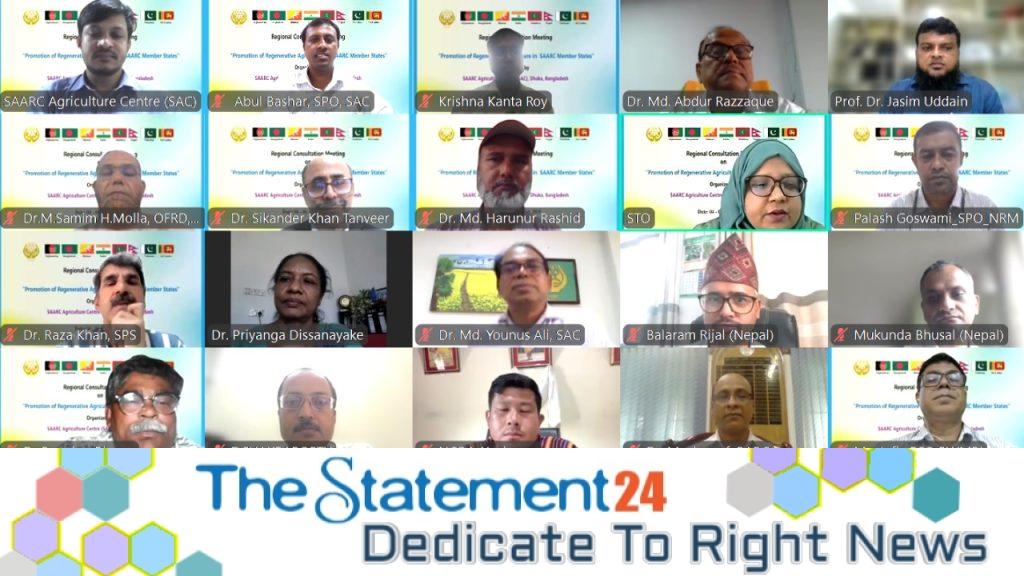
The SAARC Agriculture Centre (SAC) successfully organized a three-day Regional Consultation Meeting titled “Promotion of Regenerative Agriculture in SAARC Member States,” held virtually from 4 to 6 August, 2025. The event gathered distinguished delegates from 6 SAARC countries, agricultural research organizations, universities and several international agencies to foster cooperation and develop strategies to promote regenerative agriculture in the region.
The consultation aimed to promote regional collaboration and policy alignment to tackle growing environmental challenges in agriculture. A special focus was given to restoring degraded soils, enhancing biodiversity and building climate-resilient agri-food systems to ensure long-term food security across South Asia.
Ambassador Abdul Motaleb Sarker, Additional Foreign Secretary (SAARC and BIMSTEC), Ministry of Foreign Affairs, Bangladesh, graced the opening session as the Chief Guest. In his remarks, he stressed the urgent need to restore soil health and biodiversity across South Asia through regenerative approaches. He called for the integration of digital tools and practical strategies, urging SAC to lead this regional movement for agricultural transformation.
Dr. Md. Harunur Rashid, Director of the SAARC Agriculture Centre, chaired the inaugural session and delivered a compelling welcome address that set the tone for the three-day consultation. In his remarks, he reaffirmed SAC’s steadfast commitment to championing sustainable, climate-smart, and farmer-centric agricultural practices across South Asia. He highlighted that regenerative agriculture is not just an alternative approach- it is a transformative pathway to reverse decades of environmental damage, rejuvenate soil ecosystems and restore harmony between agriculture and nature. He emphasized that, in an era of climate volatility, regenerative practices offer a strategic solution to ensure long-term food security, improve farmer livelihoods, and strengthen the resilience of agri-food systems throughout the region.
Tanvir Ahmad Torophder, Director (ARD & SDF), SAARC Secretariat, Nepal, attended as the Special Guest. He highlighted the economic viability of regenerative agriculture, noting that, “This approach not only improves soil and environmental health but also delivers financial returns to farmers.” He stressed the importance of building a collaborative regional framework involving governments, scientists, and the private sector to scale up regenerative practices.
Over the course of the three days, six technical sessions featured more than 20 expert presentations on various aspects of regenerative agriculture. Delegates from SAARC member states, including focal point scientists and national specialists, presented country-specific country papers. These presentations shed light on the common challenges faced by the region such as rising temperatures, soil degradation, lack of irrigation water and financial constraints faced by farmers. The country papers also highlighted the need for innovative technologies and practical solutions to improve soil health and reduce dependence on chemical inputs. Experts advocated for knowledge sharing, farmer training, and the formulation of large-scale extension programs tailored to the needs of the region. Many speakers called for strong government support and cooperation among SAARC countries to enable widespread adoption of regenerative practices.

